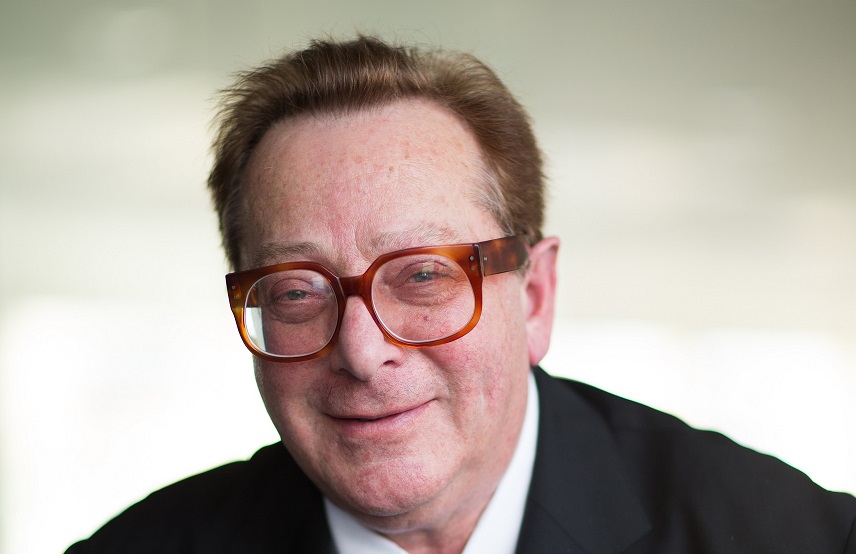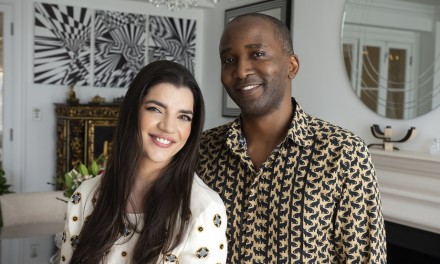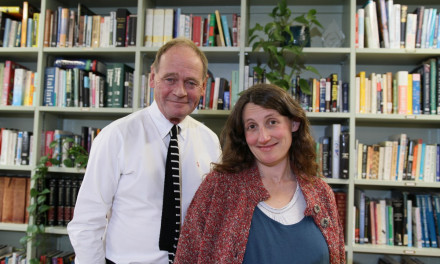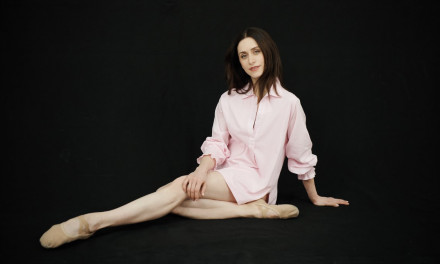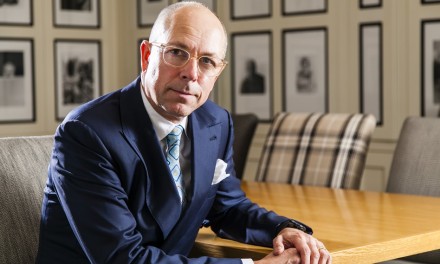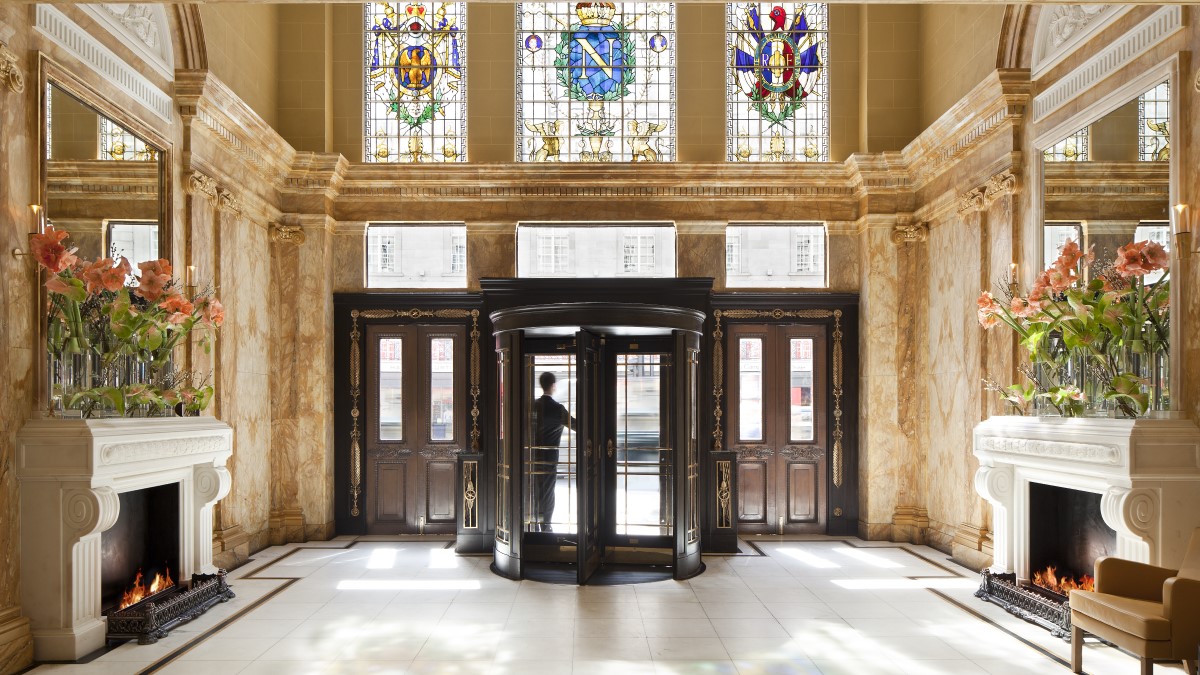Maurice Saatchi is continuing the work of his late wife Josephine Hart in bringing great poetry to life and will be supporting our Mayfair & St James’s Literary Festival in the autumn.
By Selma Day.
It's difficult to believe that the gentle, soft-spoken man I'm chatting to about poetry built what, in the mid-1980s and early 1990s, were the hottest advertising agencies on the planet – Saatchi & Saatchi and M&C Saatchi.
But thanks to his late wife Josephine Hart – the well-known and much-loved West End theatre producer and best-selling author – his biggest campaign now is to continue the work that she started to bring poetry to the masses.
Josephine established her renowned Josephine Hart Poetry Hour at the British Library in January 2004, matching leading actors to programmes of the greatest verse in English and, after her death in 2011, they continued in her name.
“I don't think it's a legacy; we view it as a formula which should continue,” says Maurice Saatchi of the work of the Josephine Hart Foundation that was set up to further the advancement of arts and culture.
Josephine's formula
Maurice goes on to explain the formula that Josephine developed: “First is that you understand and appreciate a poem better if you know something about the poet's life. So, each Poetry Hour begins with a narration.
“Second, the poems should be read aloud. And third, Josephine followed TS Eliot who said: ‘Poetry should be read by skilled readers' – and she took skilled readers to mean actors, not the poets themselves. So that became the formula. That's how it started and that's how it's gone on all these years.”
And it all started in Mayfair, which is where Maurice and Josephine lived throughout their 35-year relationship – first in Bruton Place, followed by Lees Place and then Albany.
“It was where Josephine had her office originally and where she went to do her writing, so that's how Albany came into our lives,” he says.
Poetry hours in Mayfair
“When we were living in Bruton Place, a friend owned an art gallery in Cork Street and allowed Josephine to use it in the evenings to stage Poetry Hours and that's how it started – at least 25 years ago. So Mayfair is very important.”
The Gallery Poets, as it was first known, ran a series of monthly poetry readings. The first readers to perform were Lord Gowrie, the then Minister of the Arts, and Alan Bates. Josephine then persuaded the actor Gary Bond to read Auden and there followed a string of actors including Simon Callow, Jeremy Irons and Ian McKellen.
In 1987, Josephine took a programme of TS Eliot to the Lyric Theatre in Shaftesbury Avenue, which ran for six weeks. The audience suddenly went from around 50 in the small gallery in Cork Street to 1,000.
“It sold out, which was extraordinary,” says Maurice.
“Nobody thought the West End could sell out a poetry evening, I can assure you. Josephine really had hit on a new approach to poetry.”
It was there on the last night that Peter Florence, the director of the Hay Literary Festival, suggested to Josephine that the Poetry Hours should be held at the British Library. And so the Josephine Hart Poetry Hour became established there.
That was 14 years ago and they have been held there ever since. Josephine forged many friendships along the way with some of Britain's leading actors, who remained loyal until her death and continue to perform until this day.
The mysterious art of the actor
“Josephine built what was, in effect, a repertory company of actors,” says Maurice, “and nobody knew after her death what would happen. Would the British Library go on? Would the actors continue if Josephine wasn't there? But they did.
“The greatest tribute really goes to the library itself and, in particular, to the actors. Josephine was very dedicated to actors. She dedicated her poetry books to ‘the mysterious art of the actor'. And they, in turn, were devoted to her.”
The list of performers reads like a Who's Who? of the acting world: Ralph Fiennes, Simon Callow, Dominic West, Felicity Kendal, Damian Lewis, Hugh Dancy, Rupert Graves, Tom Stoppard; to name a few. Not to mention Alan Yentob, Melvyn Bragg, David Hare and others who have taken up the challenge of playing Josephine's role of narrator.
Josephine's love affair with poetry began when she was at the Covent of St Louis near her home town of Mullingar in the middle of Ireland.
“The nuns taught her ‘a literary hierarchical system of Orwellian precision. Novels good, plays better, poetry best',” says Maurice. “Brilliant, isn't it?”
Since meeting Josephine at Haymarket Publishing all those years ago, poetry has been central to Maurice's life.
I ask who his favourite poets are. “I'd have to follow Josephine,” he says. “She taught me the very little I know and she taught me to remember the poets she adored. There are only 16 poets in The Poetry Hours programme – the ones that she loved. She regarded poetry as the highest of the literary forms and I think she would have put Eliot at the top.
“She said reading Eliot for the first time in that convent as a schoolgirl was “a physical shock”. His writing was so to the point in touching the very depths of the most important emotions.”
Josephine's legacy
Since Josephine's death, the Josephine Hart Poetry Foundation has continued her work, not only through the Poetry Hours, but also in education.
“Josephine started a programme for the writing and performing of poetry out loud in schools so that has been very important,” says Maurice.
The Guildhall School, where Josephine was an extra-mural drama student in 1966 has, for example, established The Josephine Hart Prize for Best Performance of a Poem by an Actor and The Josephine Hart Scholarship. And at RADA, the Josephine Hart poetry week forms part of the syllabus and during the week, students are taught by RADA alumni – including the likes of Kenneth Branagh – how to act poetry.
As Josephine once told me in an interview for Mayfair Times: “It's what the poet intended. He or she chose those words for the weight of their sound. When (Seamus) Heaney heard Eliot's Four Quartets, spoken by the actor Robert Speaight, he said it was like an illumination.”
Josephine herself was an illumination – not only on the world of poetry but on everyone who knew her, including her devoted husband Maurice. When we decided to do our own Mayfair Times Mayfair & St James's Literary Festival, it seemed natural to do it in association with The Poetry Hour, whose roots lie in Mayfair.
Mayfair, the village
Maurice speaks fondly of Mayfair and still lives in Albany.
“Mayfair is a small village with a village atmosphere. It is unique in London because it is an absolute whirl of action during the day, but by about six o'clock, it's very, very quiet and very peaceful.”
While poetry is still very much a niche, Josephine, we are sure, would have approved of our desire to see more literary events take place across the West End.
As she said on the opening night of her poetry week at the Donmar Warehouse: “Public performance of the great poetry of the dead poets read by great actors should be the norm in London.”
To find out more about the Poetry Hour, read here.

